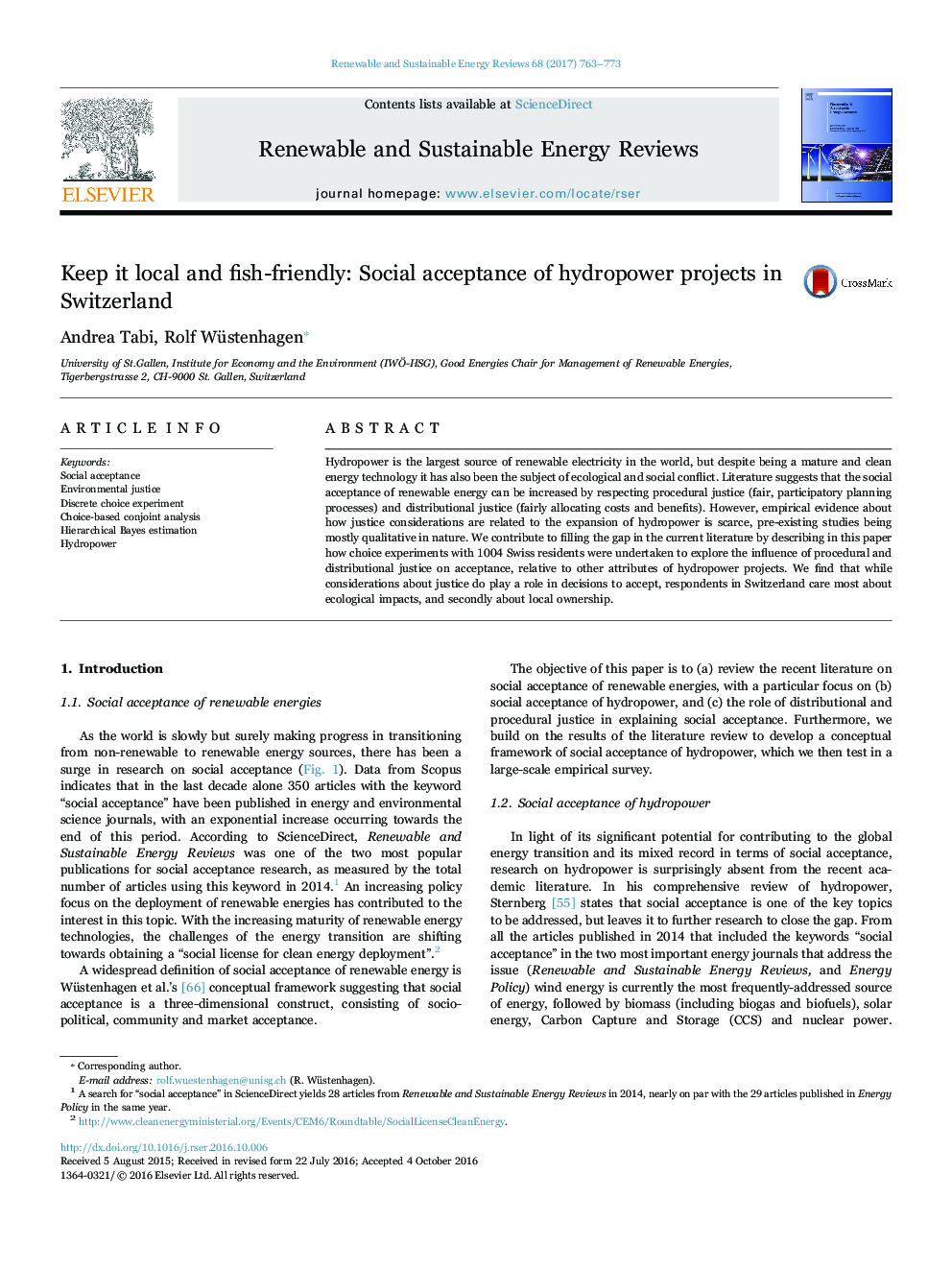| Article ID | Journal | Published Year | Pages | File Type |
|---|---|---|---|---|
| 5482705 | Renewable and Sustainable Energy Reviews | 2017 | 11 Pages |
Abstract
Hydropower is the largest source of renewable electricity in the world, but despite being a mature and clean energy technology it has also been the subject of ecological and social conflict. Literature suggests that the social acceptance of renewable energy can be increased by respecting procedural justice (fair, participatory planning processes) and distributional justice (fairly allocating costs and benefits). However, empirical evidence about how justice considerations are related to the expansion of hydropower is scarce, pre-existing studies being mostly qualitative in nature. We contribute to filling the gap in the current literature by describing in this paper how choice experiments with 1004 Swiss residents were undertaken to explore the influence of procedural and distributional justice on acceptance, relative to other attributes of hydropower projects. We find that while considerations about justice do play a role in decisions to accept, respondents in Switzerland care most about ecological impacts, and secondly about local ownership.
Keywords
Related Topics
Physical Sciences and Engineering
Energy
Renewable Energy, Sustainability and the Environment
Authors
Andrea Tabi, Rolf Wüstenhagen,
